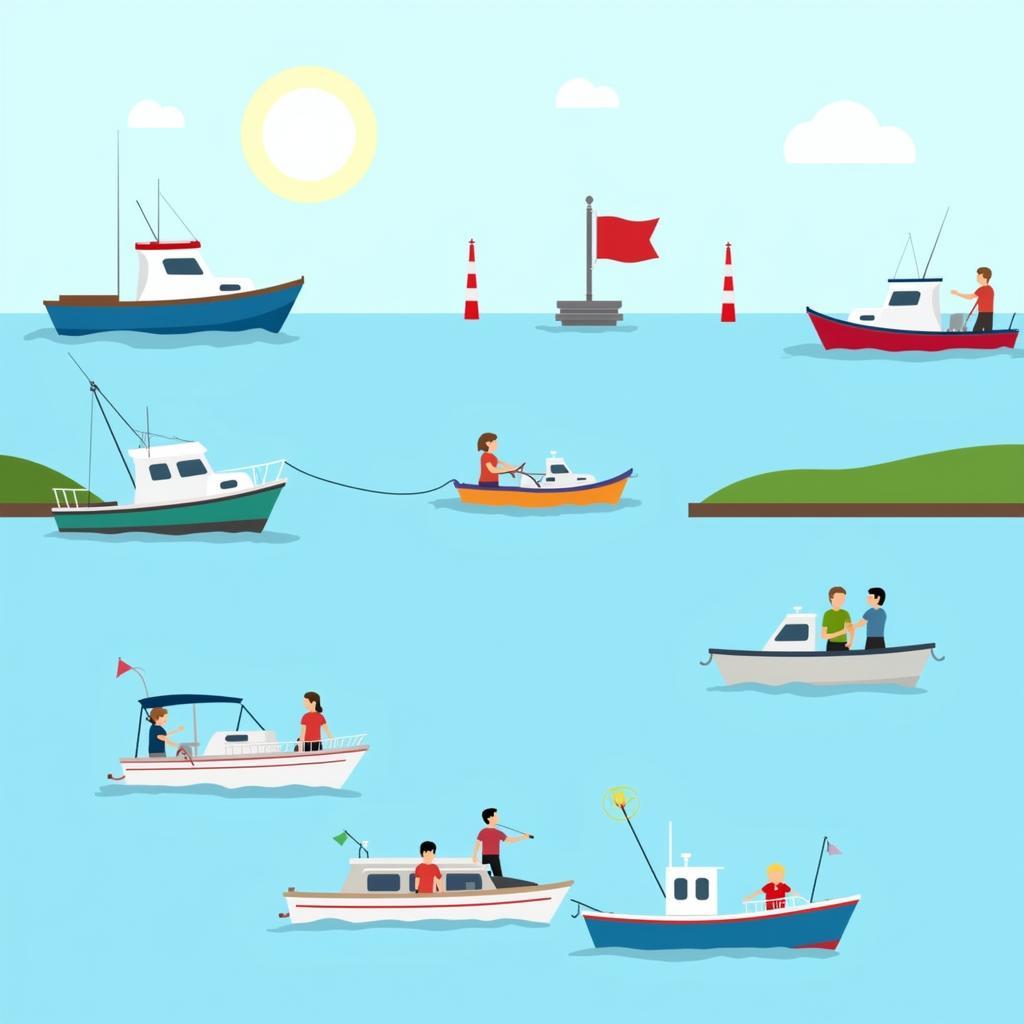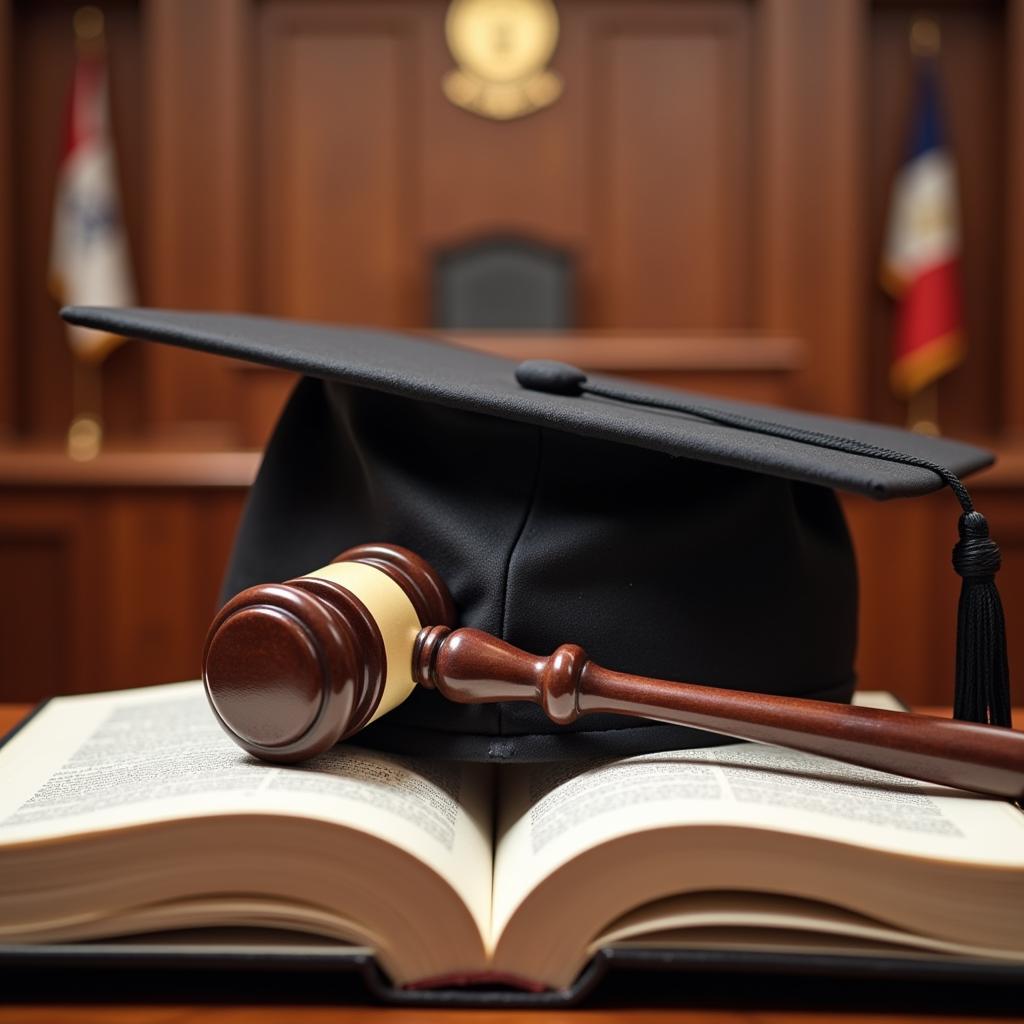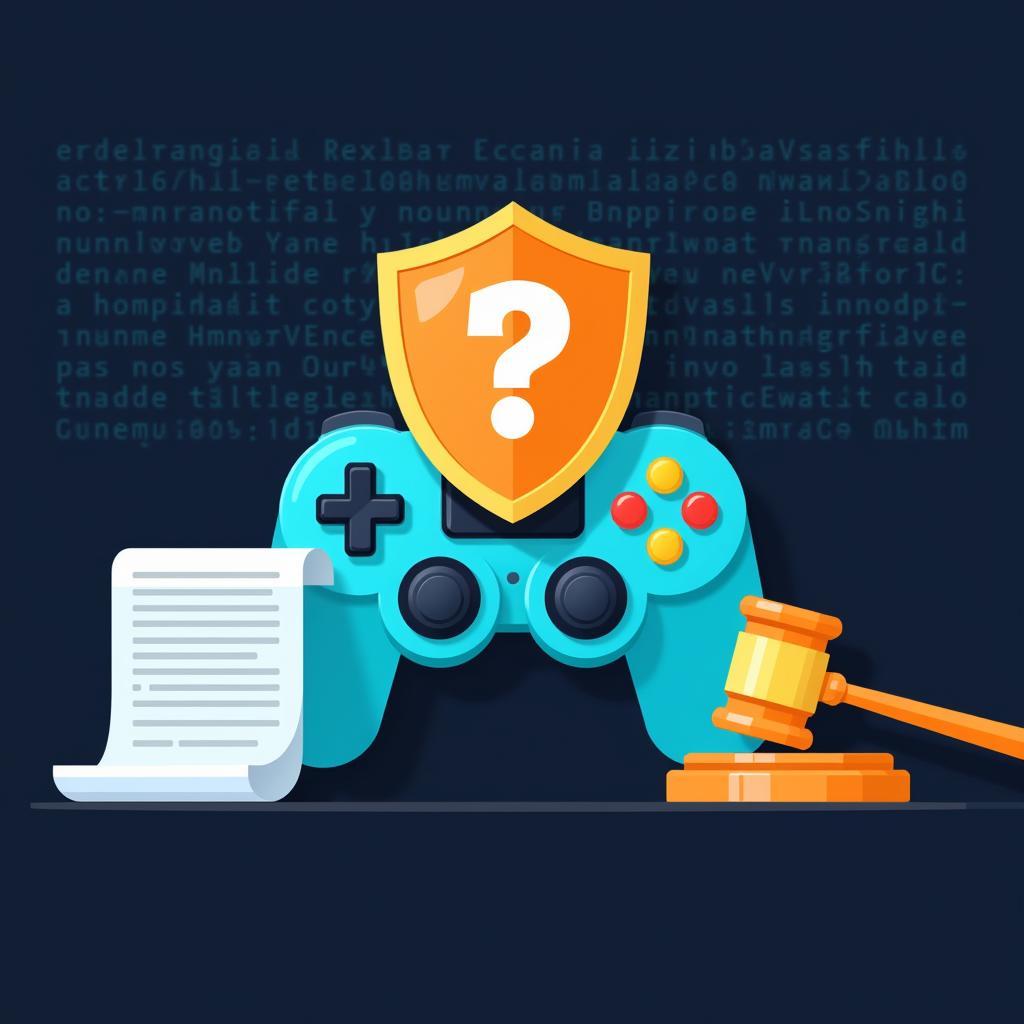Legal Responsibility in English: A Gamer’s Guide
Legal responsibility, often phrased as “being held accountable under the law,” is a crucial concept for everyone, especially in the digital age and the ever-evolving gaming industry. This article will explore the meaning of legal responsibility in English within the context of video games, covering key aspects like intellectual property, content regulations, and online interactions.
Understanding legal responsibility in the English-speaking legal landscape is vital for both game developers and players. For developers, it involves navigating complex regulations related to intellectual property, ensuring compliance with content rating systems, and managing user-generated content. Players, on the other hand, must be aware of their rights and responsibilities within the game’s terms of service, avoiding actions that could lead to legal repercussions. These responsibilities include respecting intellectual property rights, adhering to community guidelines, and refraining from harmful behavior like harassment or cheating. This delicate balance ensures a sustainable and responsible gaming environment for all. Understanding the phrase “Chịu Trách Nhiệm Trước Pháp Luật Bằng Tiếng Anh” and its implications is essential for everyone involved in the gaming world. More on legal responsibility and the function of law can be found on our website. For more on the 10 Commandments and their legal implications, visit 10 giới luật.
Intellectual Property Rights in Gaming
Protecting your creative work is paramount in the gaming industry. Copyright, trademarks, and patents form the bedrock of intellectual property law, safeguarding game characters, storylines, music, and even game mechanics. Understanding how “chịu trách nhiệm trước pháp luật bằng tiếng anh” applies in this context is crucial for protecting your creations.
Copyright Infringement and Its Implications
Copyright protects original creative works, and in the gaming world, this encompasses a broad range of elements. Infringing upon copyrighted material, even unintentionally, can result in legal action.
Trademark Protection for Game Brands
Trademarks protect brand names, logos, and other distinctive marks. A strong trademark strategy is essential for building a successful game brand and ensuring it’s not misused by others.
The Role of Patents in Game Development
Patents protect inventions, and although less common than copyright and trademark in gaming, they can be crucial for protecting unique game mechanics or technological innovations.
Content Regulation and Legal Compliance
Games are a powerful form of media, and with that power comes responsibility. Understanding “chịu trách nhiệm trước pháp luật bằng tiếng anh” in the realm of content regulation is crucial for game developers.
Navigating Rating Systems and Regional Regulations
Different countries have different regulations regarding game content, including violence, sexual content, and gambling. Adhering to these regulations is a legal requirement.
The Impact of Loot Boxes and In-Game Purchases
Loot boxes and other in-game purchases have come under increased scrutiny, with some jurisdictions considering them a form of gambling. Understanding the relevant laws is vital.
Dealing with User-Generated Content and its Challenges
User-generated content (UGC) can enrich a game, but it also presents legal challenges, particularly regarding copyright infringement and harmful content. Effective moderation and clear terms of service are essential. Learn more about business practices in line with the law at các hành vi kinh doanh đúng pháp luật.
Online Interactions and Legal Responsibilities
The online nature of many games introduces a unique set of legal considerations related to player behavior and interaction. “Chịu trách nhiệm trước pháp luật bằng tiếng anh” applies here as well.
Defamation and Harassment in Online Gaming
Defamation and harassment are serious legal issues, and online gaming is not immune. Game developers and players must understand their responsibilities in creating and maintaining a safe online environment.
Cheating and Its Legal Ramifications
Cheating can violate a game’s terms of service and, in some cases, even lead to legal action, particularly if it involves financial gain or damage to the game’s economy.
Data Privacy and Security in Gaming
Protecting player data is a crucial legal and ethical responsibility for game developers. Compliance with data privacy regulations is essential. You can learn more about the social functions of law and how they apply to the gaming industry at chức năng xã hội của pháp luật. Additionally, understand the implications of night shifts under labor law at ca đêm theo luật lao.
Conclusion
“Chịu trách nhiệm trước pháp luật bằng tiếng anh” – legal responsibility – is a multifaceted concept in the gaming world. Understanding these legal principles is crucial for developers and players alike to ensure a vibrant, sustainable, and legally sound gaming ecosystem. By adhering to these principles, the gaming industry can continue to thrive while upholding ethical standards and protecting the rights of all stakeholders.
FAQ
-
What does “chịu trách nhiệm trước pháp luật bằng tiếng anh” mean?
It means “to be held legally responsible” or “to be legally accountable” in English. -
How can I protect my game’s intellectual property?
By registering copyrights, trademarks, and patents as appropriate. -
What are the legal implications of loot boxes?
They are under scrutiny as potential gambling mechanisms, and their legality varies by region. -
Can I be sued for what I say in an online game?
Yes, defamation and harassment can have legal consequences. -
Who is responsible for data privacy in games?
Game developers are primarily responsible for complying with data privacy regulations.
Situations involving legal questions in gaming
- A streamer uses copyrighted music in their stream without permission.
- A player creates a mod that infringes on the game developer’s intellectual property.
- A game company misrepresents the odds of obtaining rare items in loot boxes.
- A player harasses another player using racist or sexist language.
- A hacker steals player data from a game’s servers.
Suggested further reading
- Legal frameworks for online gaming
- International copyright law and its application to video games
- The ethics of loot boxes and microtransactions
- Combating online harassment in gaming communities
- Best practices for data security in online games
Need help? Contact us 24/7:
Phone: 0903883922
Email: [email protected]
Address: Đoàn Thị Điểm, An Lộc, Bình Long, Bình Phước, Việt Nam. We have a customer support team available 24/7.




